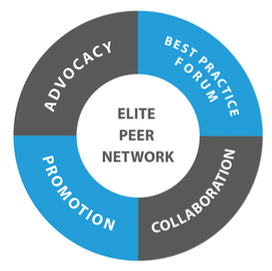Digital technologies… have created a business environment in which decision-makers can more readily acquire data to inform decisions and then shrink bottlenecks between knowing and doing. In this way, digital technologies are accelerating the pace of business. Advises Jeanne Ross in her June 27, 2018 article in the Sloan MIT Review.
Digital technologies are driving business processes—e-commerce platforms, automating purchasing, collecting and maintaining databases of personal information and preferences, emails, logistics, and so much more. It is little wonder that major Australian retailers are rapidly investing heavily in digitisation. Other companies are doing the same.
Digitisation and the CFO
Digitisation and business and financial analytics in a fast-paced world are transforming the traditional Chief Financial Officer role and adding more responsibility, often outside of the financial domain. David Dillon, a virtual CFO running Custodian Back Office, adds that all roles across the business are changing, especially in the SME sector, causing the CFO role to evolve.
A McKinsey and Company biannual research report on the evolving role of finance and the CFO published December 2018, based on responses of four hundred C-Level executives including 212 CFO’s.
Comments on this McKinsey research reported below, contains some of my thoughts and those from several members of the Virtual CFO Association of Australia. At the 3S CFO Group, we believe that these changes affect the services the virtual CFO provides the SME market. With digitisation, SME’s require a broader range of services that CFO’s are now taking responsibility for.
Increased roles
The McKinsey survey noted that the role of the CFO is becoming more cross-functional. Such change requires soft skills to influence organisational change. The focus, in larger public companies is often driven by activist shareholders to drive long term performance rather than the short term. The CFO is often considered to be the steward of company resources.
McKinsey points out that the CFO role can be a mix of risk management, corporate strategy, investor relations, regulatory compliance, enterprise transformation, pricing of products/services, board engagement, mergers and acquisitions strategy, transactions and executions, post-merger integration, IT, procurement, digital and cyber-security.
Managing talent
Changing functions now require talented and capable employees. The CFO works closely with the CEO and CHRM to attract and retain such talent to drive value in the company.
It includes broadening the experience of the finance staff across the organisation, introducing new technology, building capability and financial literacy throughout the business and improving ways of working and collaborating across the enterprise.
Training permanent accounting, along with non-finance staff, adds value to the business says Robin Snelling of CEEFO. An understanding of the data assists in developing long-term strategy, leading to better decisions, according to Robin.
McKinsey notes that technology has led to digitalisation, automation, advanced analytics in finance and the overall business operations, robotics and data visualisation. The challenges of this transformation include measuring the performance change initiatives, overseeing margin and cash-flow improvements. Before the transformation process begins they suggest that performance base-lines are required.
David Dillon believes that enabled by technology, businesses can, almost in real-time now communicate, delegate and collaborate across the enterprise more than ever.
Long term vs short term
The pressure on companies from boards and investors for short-term results means the CFO has to take responsibility to tell the story of how value is created long term, and provide both proof and metrics that show value creation.
David Thomas, Figure 8 Finance, says the CFO is the conduit for the translation of financial information, metrics and analysis to ‘common speak’ for the rest of the C-Suite team and beyond. Not that they admit it, but some don’t often understand basic financials, leading to reports being disregarded by management if not communicated clearly. David says today’s CFO requires superior communication skills to be able to translate and relate the data to allow effective decision-making.
Decision-making tools
McKinsey remarks that finance and beyond: data analytics and data visualisation, are required to make better-informed decisions about business processes. The CFO needs to be able to provide guidelines to evaluate decisions, investments and spending options— the long term value-adding processes, while steering the company to react to change in the external market proactively.
Making the shift
McKinsey continues: the CFO is involved in where to start automating the finances from excel spreadsheets to using analytics and data visualisation. Using the analytics to gain insights across the functions, including pricing, operations, supply, CRM —difficulties include understanding where the opportunities lay and financial resources to implement the changes. A talented workforce is better able to undertake the responsibilities of using the data collected. At its simplest, it can be the difference between operating profitably or losing money and not knowing where the problems are.
The benefit of digitisation, according to Robin Snelling, allows access to relevant databases to provide meaningful reports using a variety of tools. The danger of too many reports is that it may overwhelm SME’s—a failing of the forecasting and reporting tools available to accountants today. He expects that an experienced virtual CFO will be selective in presenting the most relevant reports and using analytics to get to the heart of their client’s business operations. Then use these to get to the specific explanation of any problem.
My own view is that for the small to medium business sector, virtual CFOs are less likely to get caught up in the reactive day-to-day needs of the business. Meaning they are better placed to focus on essential, longer-term planning. They base their planning and forecasting activities around the business drivers and report performance against these drivers. Mentoring and developing the finance teams while ensuring the balance between management demands and finance capabilities results in more productive outcomes. Moreover, by necessity, virtual CFOs are leading the way on digital solutions and data analytics. Their investment in the development of these capabilities is affordable because they can be spread across many clients.
To find out more about what a virtual CFO can do for you, please contact Colin Wright 0409 355 944 or via our contact page.



